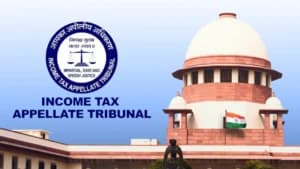In a landmark judgment on October 28, 2025, the Supreme Court of India resolved long-standing confusion over the handling of witness-threatening cases under Section 195A of the Indian Penal Code (IPC). The bench comprising Justice Sanjay Kumar and Justice Alok Aradhe ruled that offences under this section are cognizable, meaning police can directly register an FIR and begin investigation without waiting for a court’s complaint. The verdict came in appeals filed by the State of Kerala and the CBI against contrary High Court decisions.
Background
The case began when the Kerala Police registered an FIR against a man accused of threatening a prosecution witness who had turned approver in a murder case. The Kerala High Court granted him bail, holding that such offences required a complaint from the court as per Section 195(1)(b)(i) of the Criminal Procedure Code (CrPC). Similarly, the Karnataka High Court quashed cognizance orders in another case, stating that police action violated procedural norms.
Read also:- Karnataka High Court Quashes Rape FIR Against Bengaluru Man: Judge Rules Relationship
Both states challenged these rulings, arguing that Section 195A IPC-introduced in 2006-was specifically categorized as cognizable and was meant to empower victims or witnesses to report intimidation promptly.
Court’s Observations
Justice Sanjay Kumar, writing for the bench, noted that “laxity in legislative drafting” had caused unnecessary litigation. The confusion arose because Section 195(1)(b)(i) CrPC, which lists offences requiring a court complaint, wasn’t updated after the insertion of Section 195A IPC.
The Court examined how Section 195A CrPC, added in 2009, allows “a witness or any other person” to file a complaint about threats. This, the bench said, provides an additional remedy-not a restriction. “Requiring the witness to first approach the court would only cripple and hamper the process,” the bench remarked, emphasizing that the law must protect witnesses from intimidation before they testify.
Read also:- Gauhati High Court Upholds Nagaland's Right to Exclude Army Officer's Daughter from State MBBS
Addressing conflicting High Court views, the Supreme Court cited earlier rulings from Delhi, Madhya Pradesh, and Calcutta High Courts that upheld police power to investigate such offences. However, it rejected the Gauhati High Court’s opinion that only courts could initiate complaints, clarifying that “Section 195A IPC stands apart from the offences under Sections 193 to 196 IPC, which are non-cognizable and require a court’s complaint.”
The bench further explained that threats often occur before a witness appears in court. Hence, immediate police action is essential. “The offence under Section 195A IPC is conceptualized as distinct-aimed at safeguarding witnesses and ensuring fair trial proceedings,” the judges noted.
Decision
The Supreme Court set aside the Kerala and Karnataka High Court orders, restoring the original FIRs and trial court proceedings. The bail granted to the accused in Kerala was cancelled, with directions to surrender within two weeks. However, the Court allowed him to seek fresh bail on other grounds.
Read also:- Supreme Court Suspends Sentence of Man Convicted for Father's Death, Citing Five Years
Similarly, the cognizance order passed by the Dharwad Magistrate and the rejection of discharge by the Bengaluru Sessions Court were reinstated.
In closing, the bench firmly held that “once the offence is classified as cognizable, the power of police to take action under Sections 154 and 156 CrPC cannot be doubted.” The appeals were accordingly allowed.
Case Title: State of Kerala vs. Suni @ Sunil; CBI vs. Basayya Thirakaya Hiremath
Citation: 2025 INSC 1260
Case Type: Criminal Appeals arising from SLP (Crl.) No. 6238 of 2024 and SLP (Crl.) Nos. 8223–8224 of 2025
Court: Supreme Court of India
Bench: Justice Sanjay Kumar and Justice Alok Aradhe
Date of Judgment: October 28, 2025














